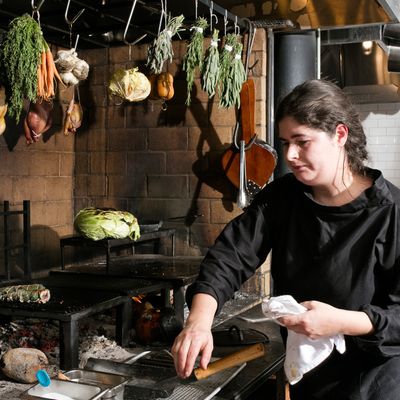
Since opening Diner in 1998, Andrew Tarlow has built a restaurant empire that’s arguably defined Brooklyn. He added Reynard to his roster in 2012: a 100-seat restaurant inside the Wythe Hotel that’s bigger than all of his other places combined. It earned one-star reviews and has never been at a loss for customers, but it’s never had as clear of an identity as Diner, Marlow & Sons, Roman’s, and Achilles Heel — so many New Yorkers’ favorite restaurants. Where does Reynard fit in? An exciting new executive chef, Christina Lecki, is figuring this out.
“I want to scale Reynard back and make it a little slower, a little more simplistic,” Lecki says. She grew up in Philadelphia and studied fashion merchandising before a trip to Japan convinced her to pursue cooking. Lecki dropped out of culinary school, but ended up working at the Breslin and White Gold. By making things at Reynard slower, though, that doesn’t mean she’s braising meats. “I have a goal to cook the way I’d like to eat, so we’re trying to make things lighter, friendlier.” Like Atla and Fairfax, this is yet another New York restaurant that’s drawing inspiration from the relaxed, all-day cafés in Los Angeles, where Lecki lived this past year, but she’s looking to be more timeless than trendy. “Chez Panisse and River Café in London are ingredient-focused places that I adore and emulate, and could eat there 100 times and never be tired. You can tell that the food’s been touched by a woman in a lot of those places. They feel feminine without being overtly feminine. It has a delicate balance that I really like. Nobody’s, like, beating you over the head with it.”
This is a topic of discussion that’s recently gained attention; in Pete Wells’s New York Times review of King, a restaurant run by two female alums of River Café, he noted, “What Ms. de Boer and Ms. Shadbolt offer is not a wild vision of new ways to cook but a solid vision of how to eat. They put pleasure at the table above gymnastics on the plate. For reasons I don’t want to understand, I associate this trait with other female chefs around town.” Though Tarlow originally opened Diner with Saltie’s Caroline Fidanza as his chef, Lecki is his only female executive chef. “It’s a true boys’ club, and they know it, too,” she says. “I can kind of get in there and be just as gruff as they are and talk all the same crap that they’re talking, but it is nice to also, at the end of the day, be slightly different.”
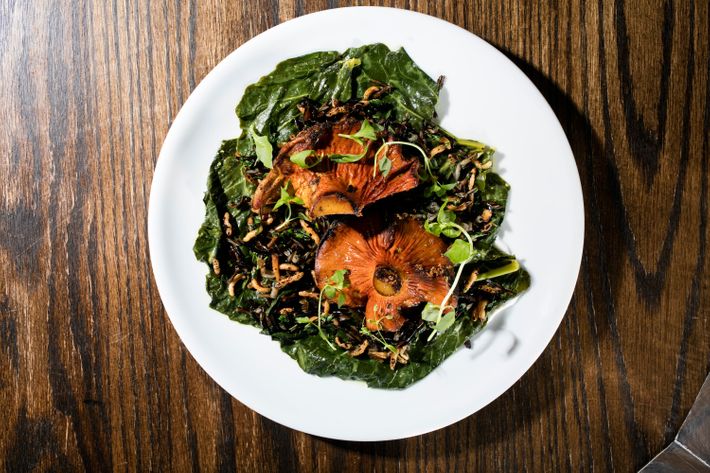
That something different translates into an almost entirely new menu (save the burger), with dishes like lobster mushrooms with curried braised collard greens, and duck with turnips, duck-fat-fried red rice, and burnt citrus. The Reynard kitchen has always contained a wood oven and a hearth, but opening chef Sean Rembold had an Argentine-style grill inside the latter, and Lecki has replaced it with a plancha and a hanging cage. “I’d love to have a big pot of soup that’s sitting on the coals of hearth and we can ladle out and serve,” Lecki says; she’s experimenting with one made from bone broth, bread scraps, whey, and garlic that’s been hung over the hearth and sent into the coals. In the wood oven, Lecki will heat husk cherries to spoon over yogurt, and roast tomatoes overnight to smear on toast with eggs and sausage. “What I keep beating into everybody’s heads here is that we don’t need 100 components. We just need three perfect things, and to really execute it in a meaningful way.”
But as romantic as this sounds, Lecki knows that good wood-fired cooking requires discipline. “You can cook stuff over wood for hours and pick up very little wood flavor, so I think it’s about understanding why you’re doing it,” she says. “Just because it’s there doesn’t mean you’re imparting real flavor, and maybe the flavor is not positive. Unless you’re at a barbecue place, I do think it sort of can be a palate killer.” A trip to visit Francis Mallmann in Patagonia, taken with her former boss April Bloomfield, helped inform this line of thinking.
Lecki takes her new leadership role seriously in other ways, thinking critically about the mental-health and addiction issues that run rampant in the restaurant industry. The Reynard kitchen is especially high pressure; the restaurant stays open from 7 a.m. to 11 p.m. daily, and does 200 covers on weekdays and 400 on weekends. “I say to my friends that we’re the last generation of cooks that worked under those really hard kitchens, where people could treat you any way they want,” she says. “There’s a lot of darkness with all that strictness, and it’s nice to see things lighten up a bit. Giving up your entire life for something is not good, no matter what you do. I have some staffers that have health or personal issues, and I try to just say, ‘Never be afraid to speak to me. I need to know what’s going on, so I know how to help you. I’m not going to know how to manage you if I don’t have a backstory.’”
“There were so many other people who were in charge before,” Lecki continues. “It’s me, now, and I want to make sure I can do this in the best way I possibly can. And to me, that’s not just making sure the food is perfect and hopefully delicious. It’s also making sure the staff’s happy and supported, and that we’re having fun.”
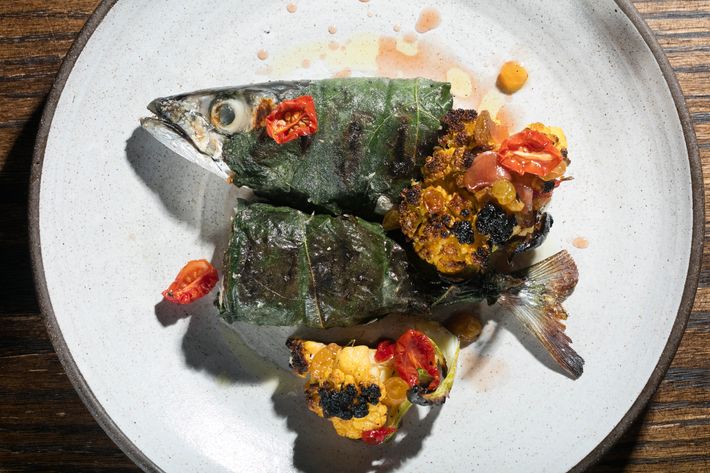
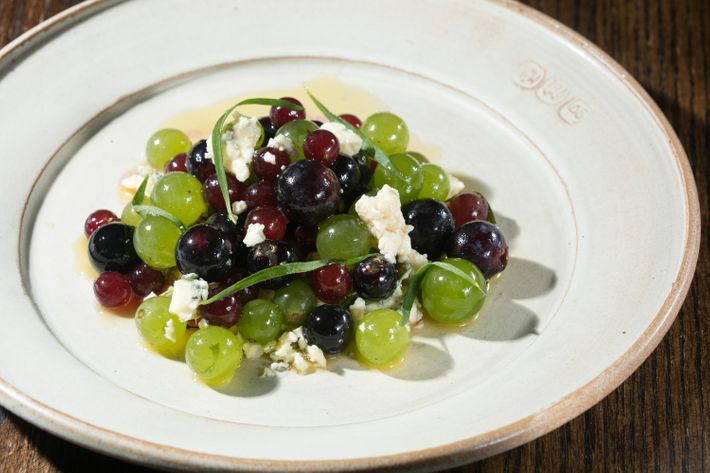
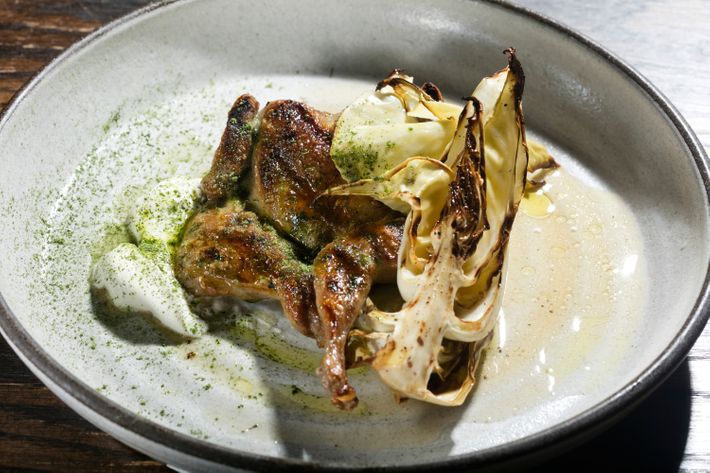
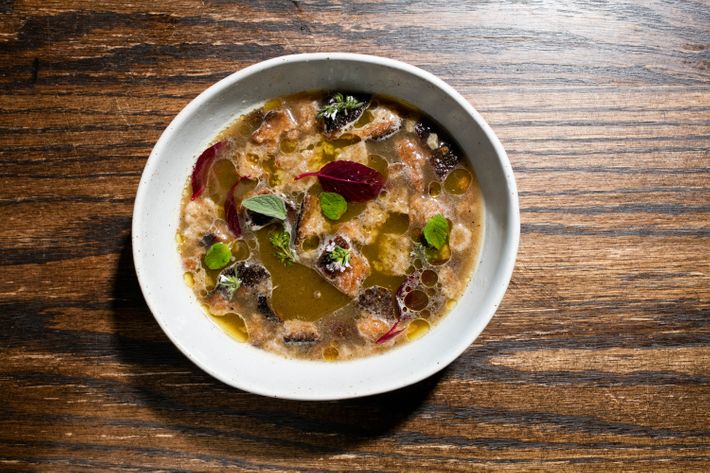
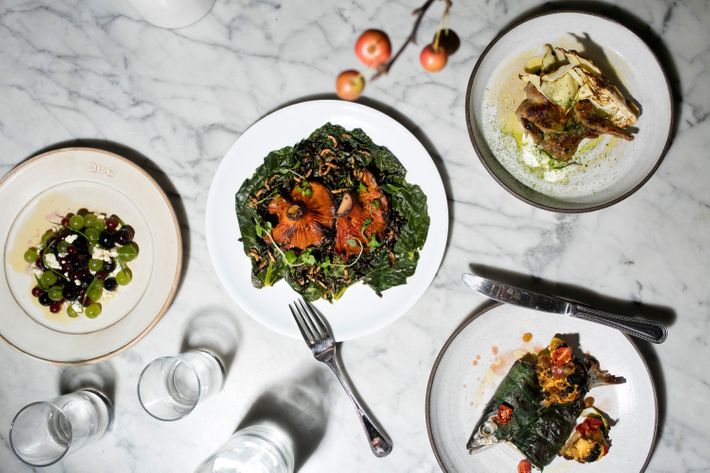
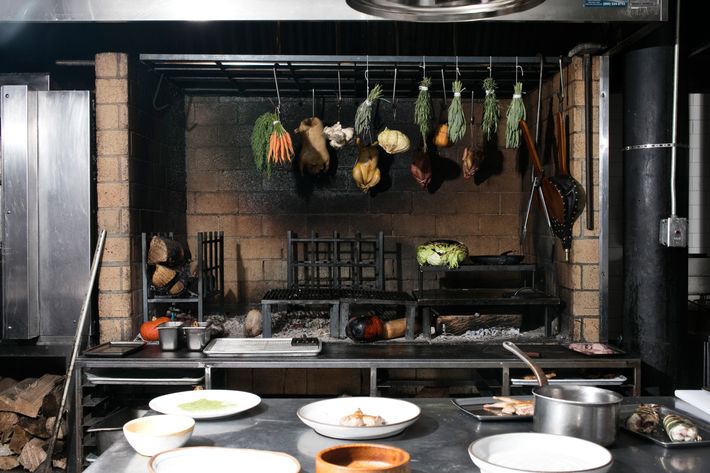
Reynard, 80 Wythe Ave., at N. 11th St.; 718-460-8004




